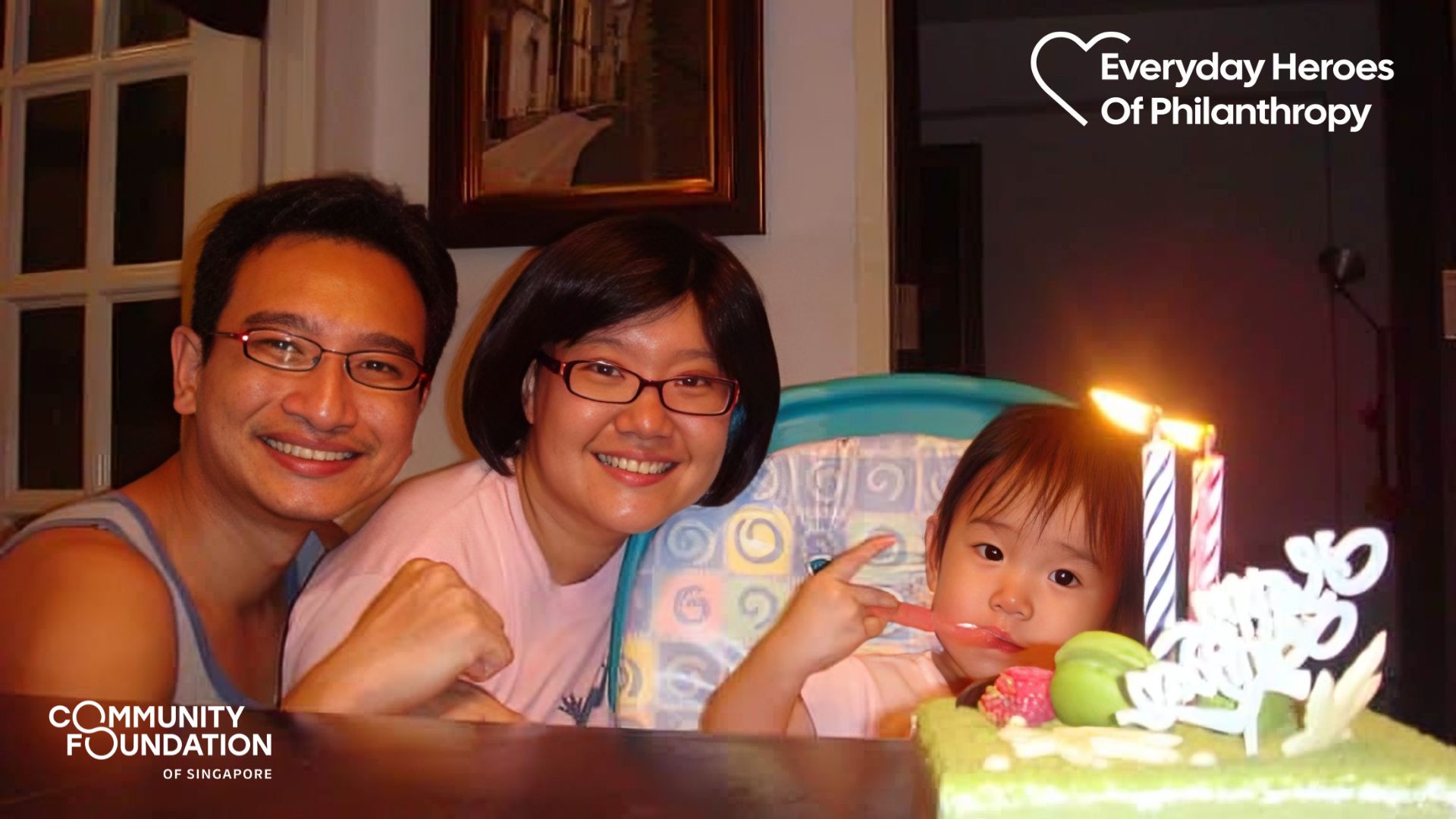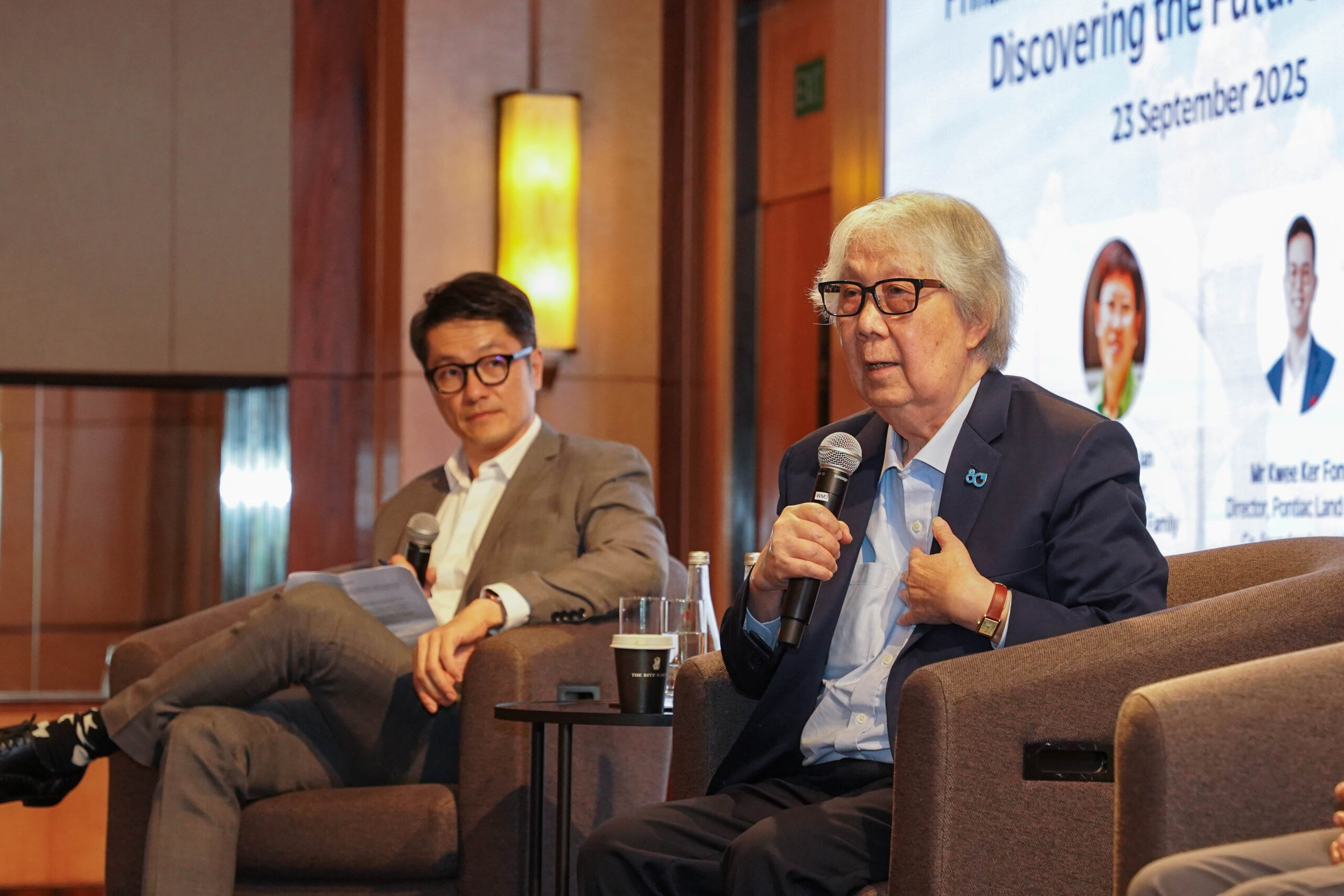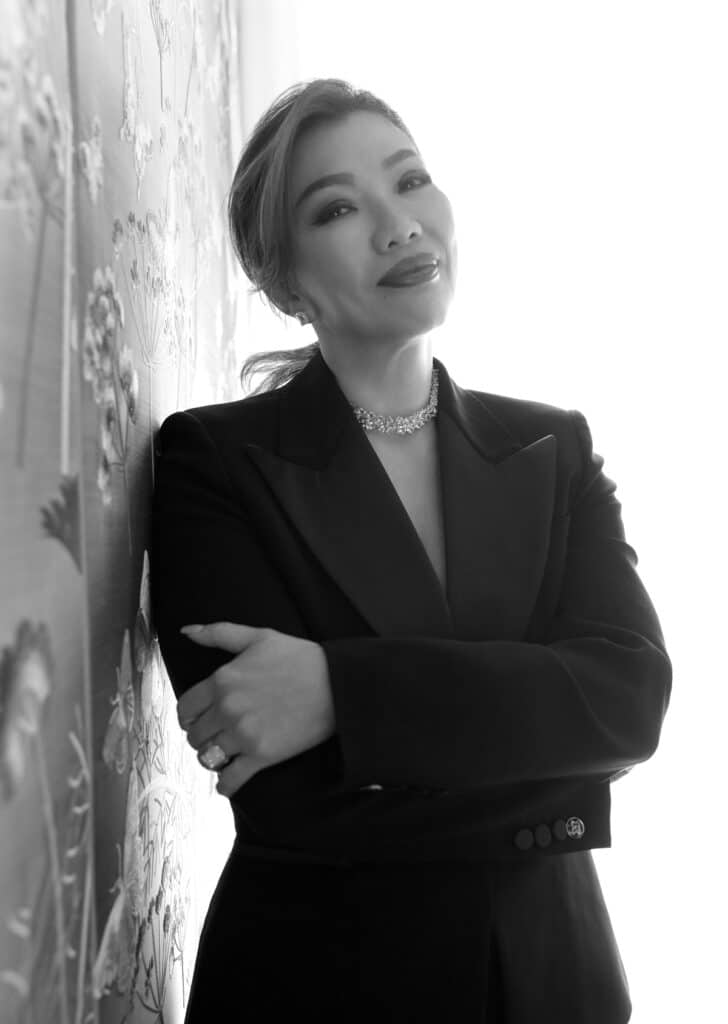Heart Of Goodness: The Vocal Prowess Of Stefanie Yuen Thio


She stands out for her irreverence. Her saucy humour. Her no-holds-barred views on a gamut of issues from cryptocurrencies to shady KTV business owners. However, right now, flanked by vibrant Pop Art in her living room and two energetic dogs, Stefanie Yuen Thio is in “pensive mode”. In fact, she is downright disturbed.
As part of the Singapore Together Alliance for Action (AfA) to tackle types of online harm, the corporate lawyer has just come from a discussion about the growing harassment women face. “It’s not just sexual grooming and revenge porn,” she says. “Women, more than men, face a higher incidence of gender-based abuse on the internet such as cyberstalking, trolling and violent threats, and teenage girls are even more vulnerable.
“We need to take a stand. It’s time the community took control,” she says. AfA is a government-led initiative, tapping youths, tech companies and academics, as well as corporate figures such as Yuen Thio, to come up with ways to make the online world a safer space. Foremost is to raise public awareness of the need for it, as victims typically have little idea what to do.
Other goals are to create a code of best practice, to offer assistance and to scrutinise how social media is shaping online behaviour as well as mental wellness. A recent study from Nanyang Technological University, for example, found that the more time we spend on Facebook, the greater our risk of suffering from depression.
A Voice For The Underprivileged
Yuen Thio knows well how social media can define us. Her voice is regularly heard on LinkedIn, where she has over 13,000 followers and was ranked one of Singapore’s top voices in 2020. She can also be heard on the BBC, where she is a guest commentator. Her tongue-in-cheek posts can be uninhibited, sometimes raising eyebrows and drawing flak. But this is not distracting Yuen Thio, who is clearly comfortable marching to the beat of her own drum, from championing the causes she believes in and sparking conversations that could galvanise change.
The online harms alliance, launched in July, is the latest of Yuen Thio’s advocacy work outside of her day job as joint managing partner at TSMP Law Corporation, a boutique corporate-law practice. She is also bringing her energy and savvy to the pandemic’s exigencies: as Singapore battled Covid-19, she has been driving efforts to help frontline workers and those hard hit by the cratering of the economy.
“I read a story about an ambulance driver who was turned away from a chicken rice stall and about nurses who could not get a taxi home,” she says. It dredged up memories of SARS, when hospital staff were shunned during the 2003 outbreak for fear of them somehow carrying the virus. “I thought f— that! We’re not doing that again,” she says.
Empowering Others To Help
So, early on in the crisis, she helped put in motion the Sayang Sayang Fund with the Community Foundation of Singapore (CFS), a nonprofit that promotes philanthropy. Yuen Thio, who sits on the board of CFS, seeded the fund with a $20,000 gift. Managed by CFS, the Sayang Sayang Fund has since ballooned to over $9.6 million and supported more than 359,302 people in the Republic.
Her law firm, too, has stepped up. With many of its staff working remotely via laptops, TSMP is donating unused desktops to the needy. The firm, which sets aside 10 per cent of annual profits for charitable giving, has been sponsoring meals and care packs for hospital workers. And, in Cheng San-Seletar constituency — its MP is Nadia Ahmad Samdin, a former TSMP lawyer — its staff have befriended and accompanied seniors to get vaccinations.
This hands-on volunteering is in addition to the pro bono work the firm does. All its lawyers are encouraged to do 25 hours per year, to improve access to justice for the under-served. The firm takes a special interest in cases where migrant workers are treated badly and works with groundup initiatives such as Humanitarian Organisation for Migration Economics, Transient Workers Count Too and It’s Raining Raincoats.
Yuen Thio, who was an advisory board member for the NUS Centre for Pro Bono & Clinical Legal Education from 2018 to 2020, recalls a tea that TSMP organised for foreign domestic workers. “We talked about their rights. And so many of them cried because nobody had ever looked at them with much humanity,” she says.
The Law Firm That Gives
The firm has also established the TSMP Law Foundation to allow more structured giving, something Yuen Thio is hoping to prod more wealthy Singaporeans into doing. With husband Thio Shen Yi, who co-founded TSMP with his mother, the couple has created a #GivingBack Foundation through CFS, which helps individuals set up and manage funds and grants. The foundation also works with over 400 charity partners in Singapore.
Through these plans, she hopes philanthropy will be less ad hoc and will become more a part of the Singaporean DNA. As part of their legacy gifting outreach, for instance, CFS is encouraging everyone to leave something in their wills to charity, be it properties, equities, art or wine. But beyond that, she wants Singaporeans to start on their philanthropic path earlier in life.
“Charity should start early and not only after you die,” says Yuen Thio. CFS can help set up foundations within as little as 24 hours and is reaching out to the well-off through private bankers and family offices.
She also advocates getting the next generation involved to further institutionalise giving. “The tragedy of this generation is a sense of purposelessness. There are too many safety nets,” reckons Yuen Thio, who has a son studying in London.
However, she notes that the youth of today also have an altruistic streak and can be swayed by causes such as climate change and social inclusion. Their motivations, compared to “my generation whose goal was to make money first”, will undoubtedly shape the future of philanthropy.
What is also firing her up at the moment is how women are reshaping philanthropy. She describes the no-strings attached, big-ticket giving by MacKenzie Scott, ex-wife of Amazon tycoon Jeff Bezos, as inspiring. In her opinion, “…Women are more concerned about impact, not control. We look at needs and, in my experience, are much more ready to open our wallets when a cause resonates with us. We tend to give from the heart, men from the head. Men are less emotional, they think of data and longevity of legacy,” she says.
Another generous giver is Melinda French, the ex-wife of billionaire Bill Gates. Both Scott and French are donating to causes that empower women and boost education — things that Yuen Thio believes could turn the tide for gender equality. Reflecting further on how these women have come into their own after their divorces, she says, “Sometimes, when the wife has lived in the shadow of her husband, you need a marriage to break down for a woman to really shine.”
Strength in Solitude
For herself, she has found solo travel to be empowering. Yuen Thio embarked on her first one three years ago and chose Beirut. “I had never lived by myself or had my own space. I wanted to feel how it was to be my own person in the world, out of my comfort zone,” she says.
Armed with her telephoto lens, the photography enthusiast made her way to the Lebanese capital and was thoroughly struck by the city’s contrasts. A memory of the bombed-out Holiday Inn rubbing battered shoulders with the palatial Intercontinental Phoenicia stands out for her, attestation to the resilience and durability of the human spirit.
Women, more than men, face a higher incidence of gender-based abuse on the internet such as cyberstalking, trolling and violent threats, and teenage girls are even more vulnerable. We need to take a stand. It’s time the community took control.
Stefanie Yuen Thio
When she turned 50, she packed her bags for a solo trip to Bordeaux and then to Auschwitz-Birkenau. She chose the wine region in the southwest of France because she speaks French, and the concentration camps in Poland to try and comprehend the past. “I wanted to understand human history,” she says, adding that we shouldn’t run away from confronting terrible things. Walking through the extermination chambers, she was shaken by the banality of evil. “I remember thinking, ‘This is what evil feels like. It creeps up on us.’”
Covid-19 has halted her travels, both for work and for leisure, but it has also given her time to slow down, connect more, write more.
“I’ve always liked writing,” says Yuen Thio, who spent one holiday during her university days as a cub reporter for The Straits Times Life!. Whether advocating for clients, the under-served, or simply musing on an issue that moves her, Yuen Thio makes an impact with her inimitable, eloquent voice.
If you would like to begin your journey of giving back, get in touch with us.
This article was originally published in A Magazine. Permission required for reproduction.
She stands out for her irreverence. Her saucy humour. Her no-holds-barred views on a gamut of issues from cryptocurrencies to shady KTV business owners. However, right now, flanked by vibrant Pop Art in her living room and two energetic dogs, Stefanie Yuen Thio is in “pensive mode”. In fact, she is downright disturbed.
As part of the Singapore Together Alliance for Action (AfA) to tackle types of online harm, the corporate lawyer has just come from a discussion about the growing harassment women face. “It’s not just sexual grooming and revenge porn,” she says. “Women, more than men, face a higher incidence of gender-based abuse on the internet such as cyberstalking, trolling and violent threats, and teenage girls are even more vulnerable.
“We need to take a stand. It’s time the community took control,” she says. AfA is a government-led initiative, tapping youths, tech companies and academics, as well as corporate figures such as Yuen Thio, to come up with ways to make the online world a safer space. Foremost is to raise public awareness of the need for it, as victims typically have little idea what to do.
Other goals are to create a code of best practice, to offer assistance and to scrutinise how social media is shaping online behaviour as well as mental wellness. A recent study from Nanyang Technological University, for example, found that the more time we spend on Facebook, the greater our risk of suffering from depression.
A Voice For The Underprivileged
Yuen Thio knows well how social media can define us. Her voice is regularly heard on LinkedIn, where she has over 13,000 followers and was ranked one of Singapore’s top voices in 2020. She can also be heard on the BBC, where she is a guest commentator. Her tongue-in-cheek posts can be uninhibited, sometimes raising eyebrows and drawing flak. But this is not distracting Yuen Thio, who is clearly comfortable marching to the beat of her own drum, from championing the causes she believes in and sparking conversations that could galvanise change.
The online harms alliance, launched in July, is the latest of Yuen Thio’s advocacy work outside of her day job as joint managing partner at TSMP Law Corporation, a boutique corporate-law practice. She is also bringing her energy and savvy to the pandemic’s exigencies: as Singapore battled Covid-19, she has been driving efforts to help frontline workers and those hard hit by the cratering of the economy.
“I read a story about an ambulance driver who was turned away from a chicken rice stall and about nurses who could not get a taxi home,” she says. It dredged up memories of SARS, when hospital staff were shunned during the 2003 outbreak for fear of them somehow carrying the virus. “I thought f— that! We’re not doing that again,” she says.
Empowering Others To Help
So, early on in the crisis, she helped put in motion the Sayang Sayang Fund with the Community Foundation of Singapore (CFS), a nonprofit that promotes philanthropy. Yuen Thio, who sits on the board of CFS, seeded the fund with a $20,000 gift. Managed by CFS, the Sayang Sayang Fund has since ballooned to over $9.6 million and supported more than 359,302 people in the Republic.
Her law firm, too, has stepped up. With many of its staff working remotely via laptops, TSMP is donating unused desktops to the needy. The firm, which sets aside 10 per cent of annual profits for charitable giving, has been sponsoring meals and care packs for hospital workers. And, in Cheng San-Seletar constituency — its MP is Nadia Ahmad Samdin, a former TSMP lawyer — its staff have befriended and accompanied seniors to get vaccinations.
This hands-on volunteering is in addition to the pro bono work the firm does. All its lawyers are encouraged to do 25 hours per year, to improve access to justice for the under-served. The firm takes a special interest in cases where migrant workers are treated badly and works with groundup initiatives such as Humanitarian Organisation for Migration Economics, Transient Workers Count Too and It’s Raining Raincoats.
Yuen Thio, who was an advisory board member for the NUS Centre for Pro Bono & Clinical Legal Education from 2018 to 2020, recalls a tea that TSMP organised for foreign domestic workers. “We talked about their rights. And so many of them cried because nobody had ever looked at them with much humanity,” she says.
The Law Firm That Gives
The firm has also established the TSMP Law Foundation to allow more structured giving, something Yuen Thio is hoping to prod more wealthy Singaporeans into doing. With husband Thio Shen Yi, who co-founded TSMP with his mother, the couple has created a #GivingBack Foundation through CFS, which helps individuals set up and manage funds and grants. The foundation also works with over 400 charity partners in Singapore.
Through these plans, she hopes philanthropy will be less ad hoc and will become more a part of the Singaporean DNA. As part of their legacy gifting outreach, for instance, CFS is encouraging everyone to leave something in their wills to charity, be it properties, equities, art or wine. But beyond that, she wants Singaporeans to start on their philanthropic path earlier in life.
“Charity should start early and not only after you die,” says Yuen Thio. CFS can help set up foundations within as little as 24 hours and is reaching out to the well-off through private bankers and family offices.
She also advocates getting the next generation involved to further institutionalise giving. “The tragedy of this generation is a sense of purposelessness. There are too many safety nets,” reckons Yuen Thio, who has a son studying in London.
However, she notes that the youth of today also have an altruistic streak and can be swayed by causes such as climate change and social inclusion. Their motivations, compared to “my generation whose goal was to make money first”, will undoubtedly shape the future of philanthropy.
What is also firing her up at the moment is how women are reshaping philanthropy. She describes the no-strings attached, big-ticket giving by MacKenzie Scott, ex-wife of Amazon tycoon Jeff Bezos, as inspiring. In her opinion, “…Women are more concerned about impact, not control. We look at needs and, in my experience, are much more ready to open our wallets when a cause resonates with us. We tend to give from the heart, men from the head. Men are less emotional, they think of data and longevity of legacy,” she says.
Another generous giver is Melinda French, the ex-wife of billionaire Bill Gates. Both Scott and French are donating to causes that empower women and boost education — things that Yuen Thio believes could turn the tide for gender equality. Reflecting further on how these women have come into their own after their divorces, she says, “Sometimes, when the wife has lived in the shadow of her husband, you need a marriage to break down for a woman to really shine.”
Strength in Solitude
For herself, she has found solo travel to be empowering. Yuen Thio embarked on her first one three years ago and chose Beirut. “I had never lived by myself or had my own space. I wanted to feel how it was to be my own person in the world, out of my comfort zone,” she says.
Armed with her telephoto lens, the photography enthusiast made her way to the Lebanese capital and was thoroughly struck by the city’s contrasts. A memory of the bombed-out Holiday Inn rubbing battered shoulders with the palatial Intercontinental Phoenicia stands out for her, attestation to the resilience and durability of the human spirit.
Women, more than men, face a higher incidence of gender-based abuse on the internet such as cyberstalking, trolling and violent threats, and teenage girls are even more vulnerable. We need to take a stand. It’s time the community took control.
Stefanie Yuen Thio
When she turned 50, she packed her bags for a solo trip to Bordeaux and then to Auschwitz-Birkenau. She chose the wine region in the southwest of France because she speaks French, and the concentration camps in Poland to try and comprehend the past. “I wanted to understand human history,” she says, adding that we shouldn’t run away from confronting terrible things. Walking through the extermination chambers, she was shaken by the banality of evil. “I remember thinking, ‘This is what evil feels like. It creeps up on us.’”
Covid-19 has halted her travels, both for work and for leisure, but it has also given her time to slow down, connect more, write more.
“I’ve always liked writing,” says Yuen Thio, who spent one holiday during her university days as a cub reporter for The Straits Times Life!. Whether advocating for clients, the under-served, or simply musing on an issue that moves her, Yuen Thio makes an impact with her inimitable, eloquent voice.
If you would like to begin your journey of giving back, get in touch with us.
This article was originally published in A Magazine. Permission required for reproduction.
- Related Topics For You: CLIMATE & ENVIRONMENT, COMMUNITY IMPACT FUND, DONOR STORIES, DONOR-ADVISED FUND, INCLUSIVITY & INTEGRATION, NEWS, SAYANG SAYANG FUND, STORIES OF IMPACT, YOUTH






